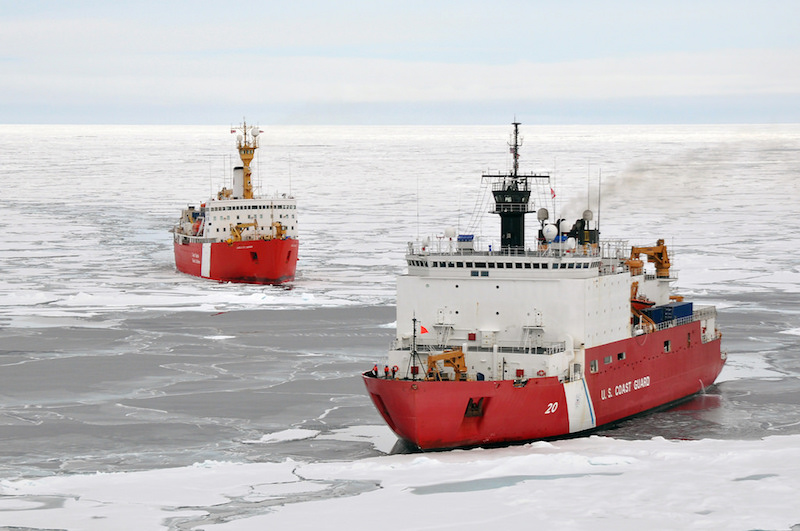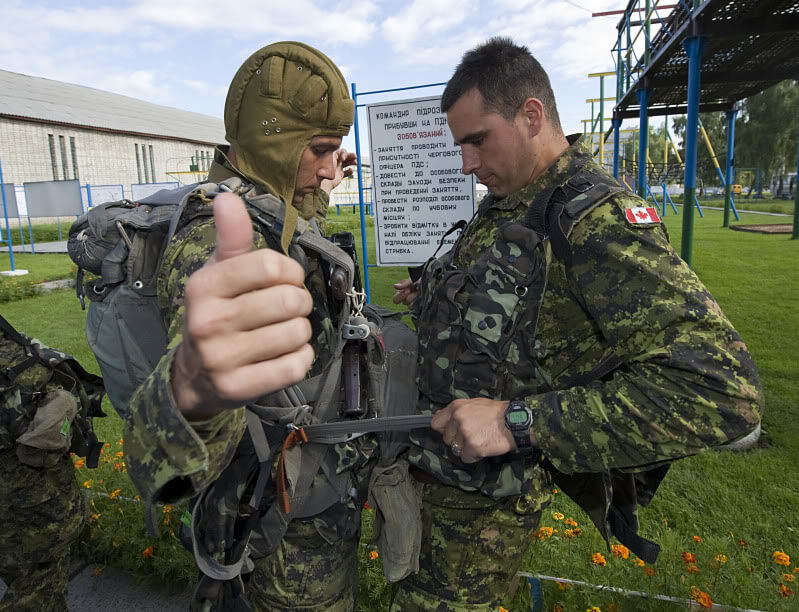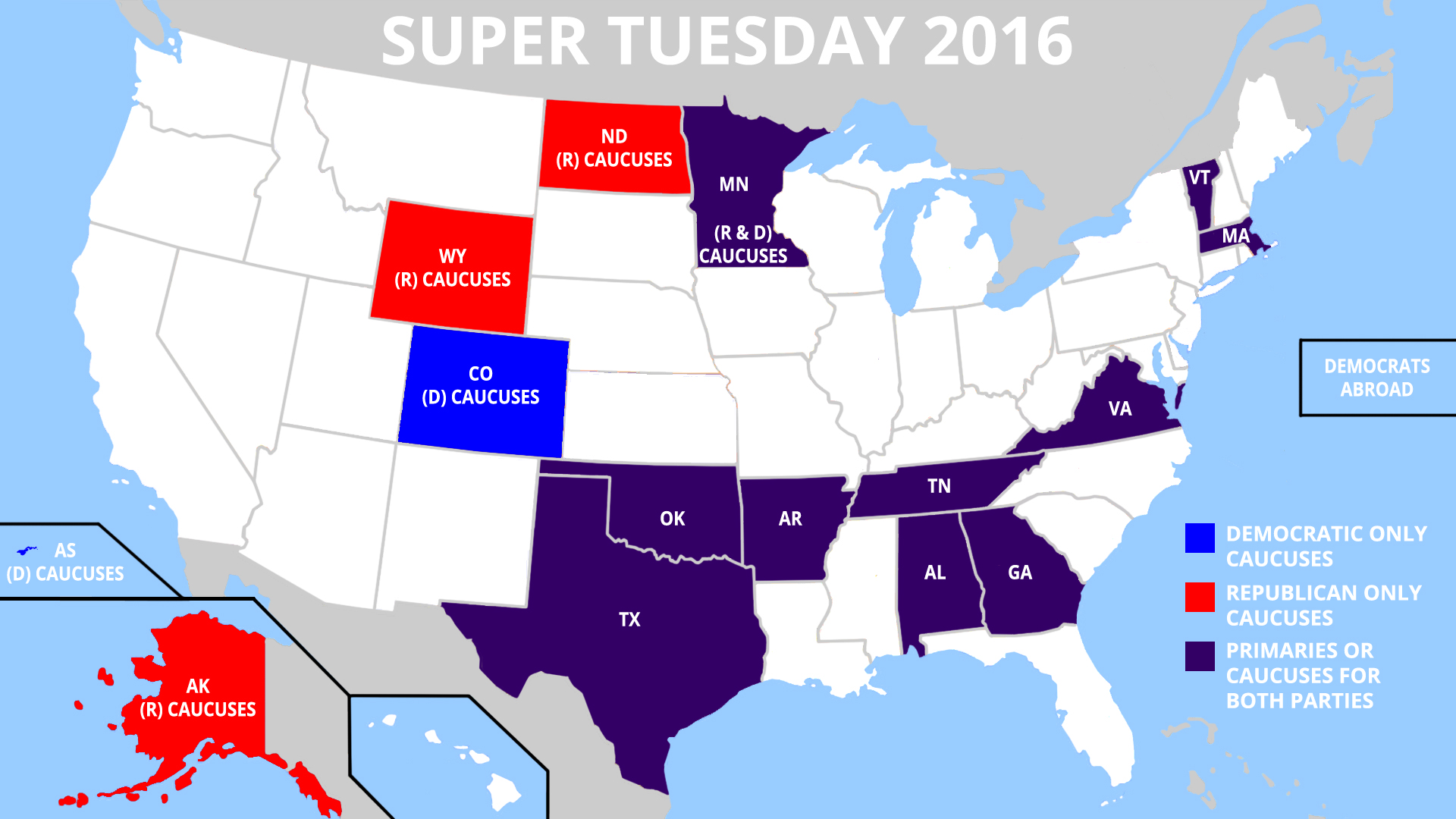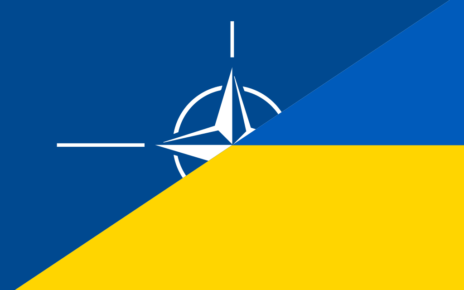A second-hand consequence of melting sea ice in the high north is the geopolitical wrangling between global powers. Accessible Arctic waters offer many of prospects for those states with available resources to overcome the region’s inconvenient location. On the surface, aspirations concentrate on economic opportunities, such as newly operational shipping lanes, mining and oil exploration, but a mounting power struggle is the real area of concern. Typically unimportant points on the map are cementing their reputations as strategic prizes. Although Canada has expansive Arctic real estate, concerns over Arctic sovereignty are relaxed at best.
Canada’s ‘Northern Strategy’ is a broad vision that encompasses such variables as environmental, First Nations’ governance, and economic concerns. There is no argument that these domestic and territorial programmes are extremely important to Canada’s future and capabilities in the Arctic. Nevertheless, a serious security and defence strategy that prioritises Canadian interests as well as sovereignty, is lacking. This perception is reinforced by the Trudeau government’s insufficient attention to augmenting defence spending, and the subsequent allegations that the Canadian Navy is unprepared for Arctic responsibilities.
Many of the visitors to, or near Canadian Arctic waters, are friendly and fellow NATO members, such as the United States and Denmark. If disputes were to develop over territorial waters or land, they would most likely be resolved through negotiation and international maritime law. Canada and Denmark’s claims to Hans Island have been typically comical and peaceful. Nonetheless, the geopolitical shift in the Arctic has resulted in other global powers seeking to make their mark in the Northwest Passage and beyond. For instance, Russian claims to regions outside their territorial jurisdiction, including the North Pole, have been well documented. Further, China encourages its ships to utilize the Northwest Passage at the same time the Asian power has its sights on becoming a ‘polar power.’
Signs of aggression or military provocation are apparent in Canadian waters as well. It has been reported that five submarines from a major foreign power patrolled Canadian North Atlantic waters. The issue with this development is that the Canadian Navy does not possess similar submarines in its arsenal to counteract such acts of aggravation. A further alarming concern is that acquisition of similar submarines is unfeasible in the near future. This is the result of a lack of strategic planning as the ambitions and abilities of Russian or Chinese navies are notorious to anyone with an interest in defence. Allegations that Canada is ill-prepared to protect its sovereignty in its high north, are factual when observed from this perspective.
One key question arises then. If Canada is unwilling to devote substantial investments in defence of its Arctic sovereignty now, what plans can be set in place in the future?
The Canadian government must highlight the development of its security apparatus and defence resources in its northern frontiers as important in its future policies. Troubling reports of Canadian submarines encountering mechanical failures, or the uncertainty of the entire program can no longer be tolerated. A more comprehensive understanding of the changing security environment and its influence on future threats is required by politicians and citizens, if Canada is to protect its Arctic sovereignty and become a leader in this developing area of international security.
Similar suggestions have been made by security experts in reference to the ongoing Canadian Defence Review, and they should be at the top of the list of recommendations. In order to patrol its waters independently, Canada requires investment in its navy and all the technical logistics that are part of such a large scale operation. A framework for such an expansive undertaking already exists, as the Russian Federation has engaged in a process of domestic economic development and militarization of its expansive tundra. Canada must reach an appropriate balance of military manifestations, security and integrity of the North suited to its national interests.
As a member of NATO, Canada enjoys the benefit of developed defence alliances with maritime powers. Many members with strong Atlantic fleets can aid Canada in patrolling its waters in the case unfriendly traffic increases to provocative levels. Although an extremely expensive suggestion, and one that would have to consider the territorial claims by member states, a NATO organized flotilla like that suggested for the Black Sea could be a possibility if Canada is sluggish in making the required investments in its navy. Arctic waters are much more expansive than the mentioned example, but a unified front in the High North may be essential to deter incursions from unfriendly or foreign provocateurs. It is the vastness and number of sovereign states concerned that make patrolling the Arctic more difficult, but easier to organize at the same time.
Understanding a security threat requires discerning whether an event is an anomaly or an indication of a significant security concern. As Arctic sea ice continues to melt, instances of Russian submarines, or long-range jets venturing into or close to Canadian waters increased. Both Russia and China have stated their intentions to engage in the Arctic numerous times. A narrative develops that geopolitical power plays are shaping up in the Arctic and while they can be managed with contemporary resources currently, these weighty threats will clash with Canadian interests in the future. A viable Arctic sovereignty plan must be established, and plans for its funding must be ascertained now. Once this occurs, Canada’s strong claims of protecting Arctic sovereignty will hold weight in the international community and to concerned Canadians.
Photo: Canadian Ship Louis S. St-Laurent and Coast Guard Cutter Healy in the Arctic Ocean. By DVIDSHUB via Flickr. Licensed under CC BY 2.0.
Disclaimer: Any views or opinions expressed in articles are solely those of the authors and do not necessarily represent the views of the NATO Association of Canada.




